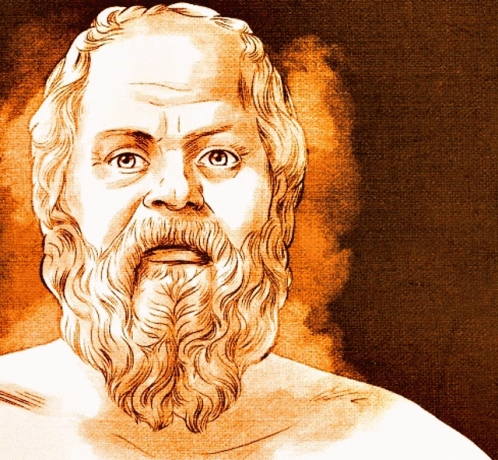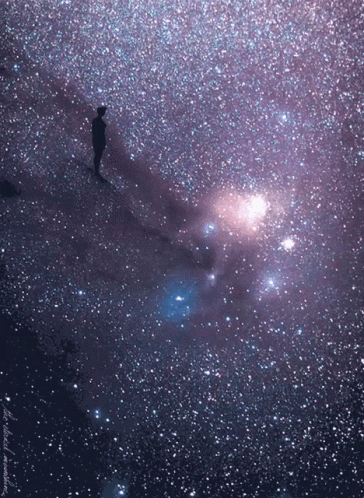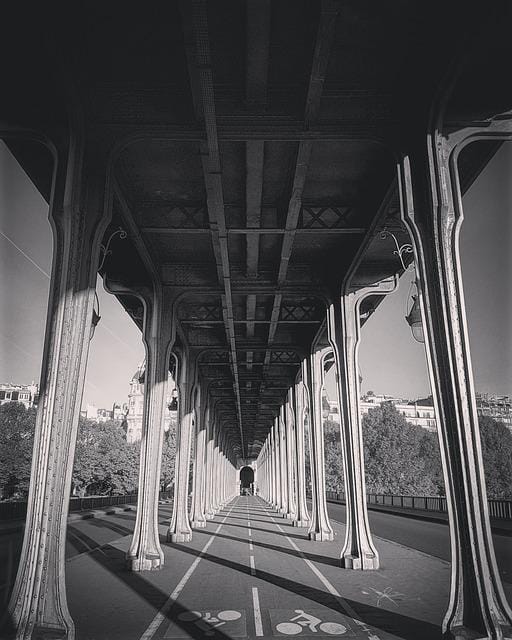Listen to this article on Spotify here (it's got music and everything).
The truth - you are going to die
Let's start with some hard home truths. You are going to die. Everyone you know or will ever know, will also die. You do, I'm afraid, just have to accept it.
Well, now we've got that out of the way and we've acknowledged the inescapable reality of our own demise. What I really want to know is...
Why don't we talk about death more?
You may not have been confronted with your own mortality for a while. Maybe not ever. Sorry about that. How do you feel about it? Was it hard to hear? Well if it was, maybe that's because we don't talk about it that often. And what I want to know is, why not?
The saying goes that death as well as taxes (but we'll save those for another time) are the only certainties in life. So why don't we talk about it more? If anything, why isn't it the main thing we talk about? Why don't we have it in the back of our minds most days? Why don't we bring it up with our friends in the pub? Or at a family BBQ? Or with the checkout worker?
Well let's be honest, that sounds quite grim doesn't it? But it feels like there is no right time to bring it up. As we know it is the only certainty, you could say that it's the defining feature of life, so why are we so afraid to talk about it? Maybe it’s because we don't like to be reminded of our own finitude whilst we're shopping for risotto ingredients. Or perhaps it's because we all have different ideas about what happens when we die and so we don't want to be drawn into deep discussions that expose our different attitudes on the topic. Especially when deciding between vegetable stock brands.
But maybe it's because we've never really been taught how to talk about death.
How do we see death?
Apart from funerals, we in the West don't really have any rituals (anymore) that help us to confront or think about death. Which cannot be said for other cultures around the world, many of which do have occasions where they will talk about death and confront the reality of it (think of Mexico's Dia del Muertos or the Japanese Buddhist festival Obon). Our lack of ritual means that when we face death we do so completely unprepared.
It's not completely our fault. At least some of the reason is that death is no longer a part of our day to day existence. You only have to go back a few generations to find a time when life was much shorter, infant mortality much higher and wars & famines regularly swept a significant percentage of the population from the face of the earth. Which meant that people were used to dealing with and confronting death on a regular occasion.
During covid, it felt a bit like we had death thrust into the limelight but we didn’t know how to deal with it. The outdated stiff upper lip feels pretty useless doesn't it?
The slow decline of religious prevalence has also eroded the structures, rituals and frameworks we once used to talk about death. The comfort blanket of the afterlife whipped away by atheistic rationality without thought to what could or should replace it. So maybe that's making us scared to talk about it. Scared to accept the hard truth of the matter.
What should we think about death? How should our death affect us?
Ok so as we've agreed, you are going to die and there's nothing you can do about it (notwithstanding vain attempts throughout history of people trying to immortalise themselves physically or metaphorically. For current reference, see silicon valley). But is there anything you can do about it? Well literally no, sorry. But there is plenty we can do to affect our attitudes and approach to death.
It is a terrifying truth that everyone you know is going to die and perhaps much sooner than you think. I don't say this to make you miserable but quite the opposite. I think reminding ourselves of death can help to give us a better perspective on life. Help us to ignore small annoyances and enjoy the present, especially with your loved ones.
Because what makes interactions special is the finitude, that this could be the last time you ever do something.
If the only certainty is that death will come for us and we also can’t be sure when, then anything you do could be the last time you do it. Maybe that forces us to be more present. How many times do you finish a meal only to realise that you haven’t savoured a single mouthful? What if the next time you ate a piece of chocolate or went for a walk or talked with a friend you knew it was the last time you would ever do that. Wouldn’t you savour every mouthful, every step, every word?
I promise you a Twix tastes so much better when you think it might be your last ever one.

So confronting the reality of death can be a great way to be joyfully focused on the present moment. Accepting that Maka Alban might be around any corner doesn't have to be grim. Instead we can use it to bring the right perspective to life.
For example, my Grandpa is 92 years old. I see him once every 4 months or so. If I'm incredibly lucky, let's say Grandpa has 2 more good years, that's 6 more times that I'll see him. Just 6. Now writing that makes me panic a little bit. I wonder if it made you panic too? Did it make you think about your grandparents or parents in a similar way? I think we should let that feeling affect us; pick up the phone a bit more, go for a visit and make sure we absorb as much of the present moment as possible when we're with the people we love. To feel all the nuanced colours of the moment and to make sure we're being the best version of ourselves when we're with them.
How death affects life - embracing finitude
“Every man has two lives, and the second starts when he realises he has just one” — Confucius
The tech entrepreneur and investor Naval Ravikant talks about embracing death. He explains that it’s actually freeing to realise everything you do is ultimately meaningless.
Death is the most important thing that is ever going to happen to you. When you look at your death and you acknowledge it, rather than running away from it, it’ll bring great meaning to your life. We spend so much of our life trying to avoid death. So much of what we struggle for can be classified as a quest for immortality.
Keeping death on the forefront and not denying it is very important. Whenever I get caught up in my ego battles, I just think of entire civilizations that have come and gone. For example, take the Sumerians. I’m sure they were important people and did great things, but go ahead and name me a single Sumerian. Tell me anything interesting or important Sumerians did that lasted. Nothing. So maybe ten thousand years from now or a hundred thousand years from now, people will say, “Oh yeah, Americans. I’ve heard of Americans.” You’re going to die one day, and none of this is going to matter. So enjoy yourself. Do something positive. Project some love. Make someone happy. Laugh a little bit. Appreciate the moment. And do your work.
In his book Apocolapydia, Darren Allen has a similar thought.
Face the fact that you and everyone you know is going to die; and much sooner than you think.
Think about it deeply and let those thoughts affect you. Talk about death with anyone you can and lean into the fear. Find death before it finds you.
Think about why you are scared of death. If you’re like me you’ll start listing things you haven’t done but want to do. Travel the world, write a novel, that kind of stuff, which is great and thinking about death does make me want to just get on and do those things but also maybe we just need to be more present in the adventure of every day.
Or is it the fear of the unknown. Thinking that eternity is an incredibly long time to be dead. Well all I can say is that there's nothing you can do about that and it's the same for everyone (ambitious billionaires aside) so try not to let it affect your life negatively.
The Greek philosopher Socrates is credited with saying "Death may be the greatest of all human blessings".
Why did Socrates say that? Seems a bit grim doesn't it? Well perhaps it’s because he recognised that confronting death and recognising our finitude actually enhances life. Maybe the recognition and knowledge of our mortality is what makes us human more than anything.

Are you going to die?
"I mean, they say you die twice. One time when you stop breathing and a second time, a bit later on, when somebody says your name for the last time.” - Banksy
I like Banksy's (I'm sure stolen and adapted) quote because it makes us think about the 'legacy' that we leave behind us. Now obviously this can be negative if you go down the Ozymandias route but if it makes you change your behaviour for the better or try to do some good because you want your name to be remembered positively then I see no issue with that. But what if we take that idea about the second time you 'die' a bit further?
The closest stars to our solar system are called Alpha Centauri. There are 3 stars in this system and around one of them there orbits a Neptune like exoplanet called Proxima Centauri b. This adorable thing is only about 4.3 light years away from earth and what that means is it takes light about 8 years (give or take) to get from earth to Proxima Centauri b. Which means that up to 8 years after your death, aliens on that exoplanet with telescopes pointed to earth will still be able to see you going about your business. Weird right? And that continues on into the universe. The light you emit will travel on for eternity so that distant planets in millennia to come may still see you alive on earth doing your thing.
Maybe it's useful to think of your life that way. It certainly feels sort of poetic to me that the trip to Snowden with my mates a few years ago or the day I proposed to my fiancé or my last walk to the beach with my grandpa is captured forever in an indelible etch in light on the canvas of the universe.

We should talk about death more
So, what should we do? I think the answer in the end is just to talk and think about death more. It doesn’t feel like we do that enough, especially in the west. We sanitise it, sweep it under the carpet, hide it in hospitals.
Maybe we should just start by talking about death more. Ask people we know what they think about it. See if we can help each other to live our lives a little more intentionally, be focused on the present and appreciate those around you before they and you depart.
Thank you for reading. This is such a huge topic and I'd love to know what you think. Why don’t we talk about death more...



